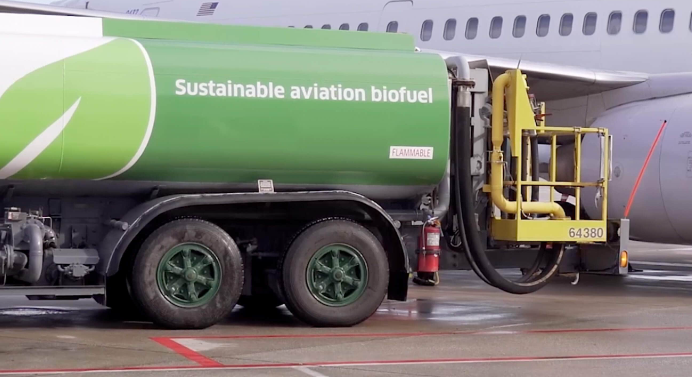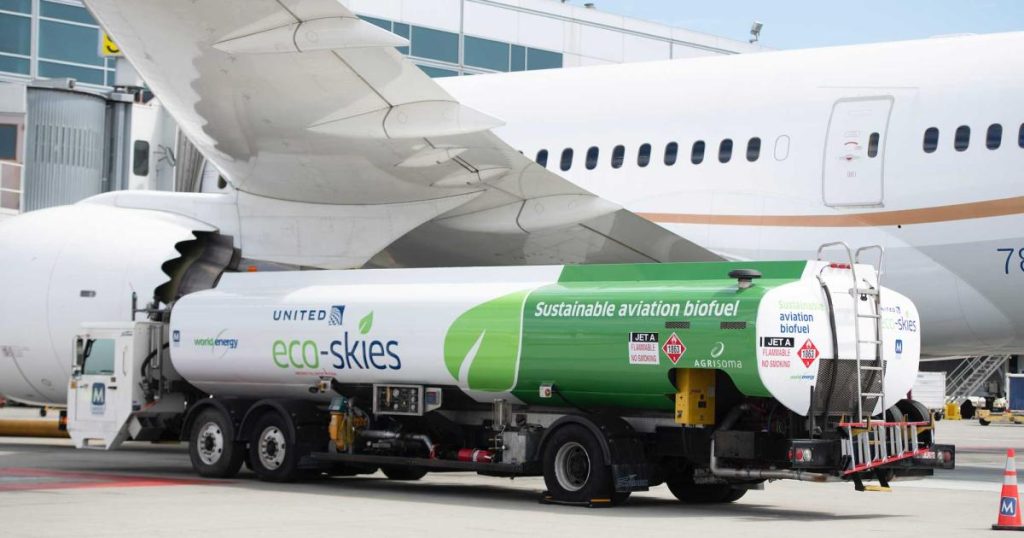Honeywell announces new technology for sustainable aviation fuel
Honeywell has announced an innovative technology aimed at producing sustainable aviation fuel (SAF) at a lower cost, addressing one of the most pressing challenges in the aviation industry. This new technology promises to diversify the feedstock options, making SAF more accessible and affordable.

Image Source: Honeywell
Ken West, President and CEO of Honeywell Energy and Sustainability Solutions, highlighted the growing demand for SAF and the limitations posed by traditional feedstocks such as vegetable oils, animal fats, and waste oils. “Our new technology, combined with the existing Fischer-Tropsch process, will broaden the range of available feedstocks to more abundant sources, enhancing our customers’ ability to produce SAF,” West stated.
Honeywell’s hydrocracking technology is designed to convert biomass into SAF. This technology can produce 3-5% more SAF and reduce production costs by up to 20% compared to conventional hydroprocessing methods. Additionally, it minimizes by-product waste streams. The Fischer-Tropsch (FT) UnicrackingTM technology processes liquids and waxes from biomass, including agricultural residues, wood waste, and food scraps, to produce SAF that meets stringent aviation standards and has a reduced environmental footprint.

DG Fuels, a US-based company, has chosen Honeywell’s FT Unicracking technology for its biofuels manufacturing plant in Louisiana. Set to begin operations in 2028, the facility will produce 13,000 barrels of SAF per day. Michael Darcy, CEO of DG Fuels, emphasized the impact of this technology: “With Honeywell’s advanced technology, DG Fuels will supply enough fuel for over 30,000 transatlantic flights annually, significantly reducing global air travel carbon emissions. This marks a substantial step towards the airline industry’s goal of achieving net-zero carbon emissions by 2050.”
Honeywell has been producing SAF commercially since 2016 through its EcofiningTM process. The company continues to expand its portfolio, offering solutions across various feedstocks to meet the surging demand for renewable fuels, including SAF. Currently, more than 50 sites worldwide have licensed Honeywell’s SAF technologies, with refineries expected to achieve a combined capacity of over 500,000 barrels of SAF per day once fully operational.
Honeywell’s latest technology development marks a significant advancement in making SAF more cost-effective and scalable. By expanding the range of feedstocks and reducing production costs, Honeywell is poised to play a crucial role in the aviation industry’s efforts to reduce carbon emissions and achieve sustainability goals.






